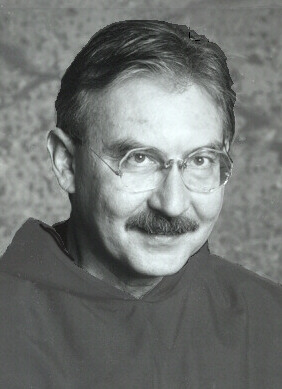Secretary's letter
We are celebrating the centenary of Blessed Elizabeth of the Trinity. When I first began my Carmelite journey, she was one of the Saints that I was so attracted to. The book, "Light, Love, Life" was a favorite, and I especially appreciated the pictures and her quotes that spoke so eloquently of her love for the Trinity, for her solitude, and for everything Carmelite. It was like "taking a walk
 with her through her cloister." She is such an inspiration to me.
with her through her cloister." She is such an inspiration to me."Abandonment -that is what surrenders us to God. I am quite young, but it seems to me that I have suffered much sometimes. Oh, then, when everything was dark, when the present was so painful and the future seemed even more gloomy to me, I closed my eyes and and abandoned myself like a child in the arms of this Heavenly Father. We look at ourselves too much, we want to see and understand, we do not have enough confidence in Him who envelops us in His love. We must not stop before the cross and regard it in itself, but recollecting ourselves in the light of faith, we must rise higher and think that it is the instrument which is obeying divine Love.
"One thing alone is necessary; Mary has chosen the better part and it shall not be taken from her." This better part, which seems to be my privilege in my beloved solitude of Carmel, is offered by God to every baptized soul. Believe that His whole desire is to lead you ever deeper into Himself. Surrender yourself and all your preoccupations to Him."
We are so blessed to have the writings, the teachings, and the examples of these great lovers of Father, Son, and Holy Spirit.
Recently, in going through my "growing" files of papers, I ran across this, which was generated by the Second International Congress held in Mexico in August of 2000. It was the Dallas Community's response to the discussion question: "What does a layperson receive by belonging to the Secular Order?"
· A deeper awareness of the divine life within each of us; deeper knowledge of the will of God.
· Development of the practice of the presence of God and the detachment it entails; the art of meditating; carrying the sense of the presence of God into our daily lives, our work, our families, our apostolates; our play.
· Development of a love relationship with the Trinity
· Community; sharing the spiritual journey with others; receiving support; being part of a family
· A rule of life that guides and nourishes one's quest for holiness
· A desire to serve
· The desire for union with God.
Some information about the Flos Carmeli:
For ailing or elderly members who are no longer able to attend the meetings, but wish to have the newsletter; I normally send it to them as requested by the Community. If the Community can pick up the fee, well and good. (The fee for the newsletter would be $16; they are no longer charged the full amount of dues). If communities do not feel they can handle that, I will mail the newsletter directly to the ailing/elderly member without charge.
For indigent members who are still attending meetings; the community pays their Provincial dues and payments of community dues are at the discretion of the community.
May I close this letter to you with one more quote that I love from Bl. Elizabeth: "...you can be a Carmelite... for Jesus recognizes the Carmelite from within her soul..."
I pray that she be our special friend, companion, and teacher as we journey through this year.
Your sister in Carmel,
Provincial Secretary
Sites of Interest
In 2006 we celebrate the Centenary of the death of Blessed Elizabeth of the Trinity. Information about her can be found @
http://www.ponybit.org
Blogspot for Oklahoma Province:
http://oklahomaocdsview.blogspot.com
Friars of our Province:
http://www.carmelitesok.org
Seculars of our Province:
http://www.geocities.com/korvesem/Province/oklahoma province.htm
Discalced Carmelite Generalate (Rome):
http://www.ocd.pcn.net
OCD/Ocarm Joint Generalate:
http://ocarm-ocd.org
St Louis OCDS
http://www.stl-ocds.org
2007 Seattle Congress
http://congress.ocds.info


